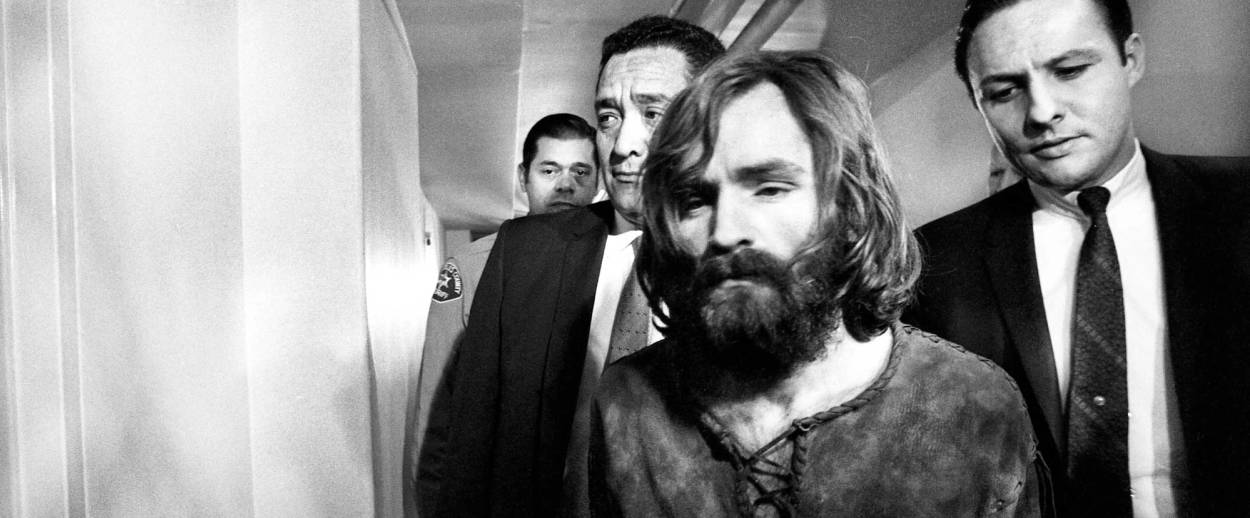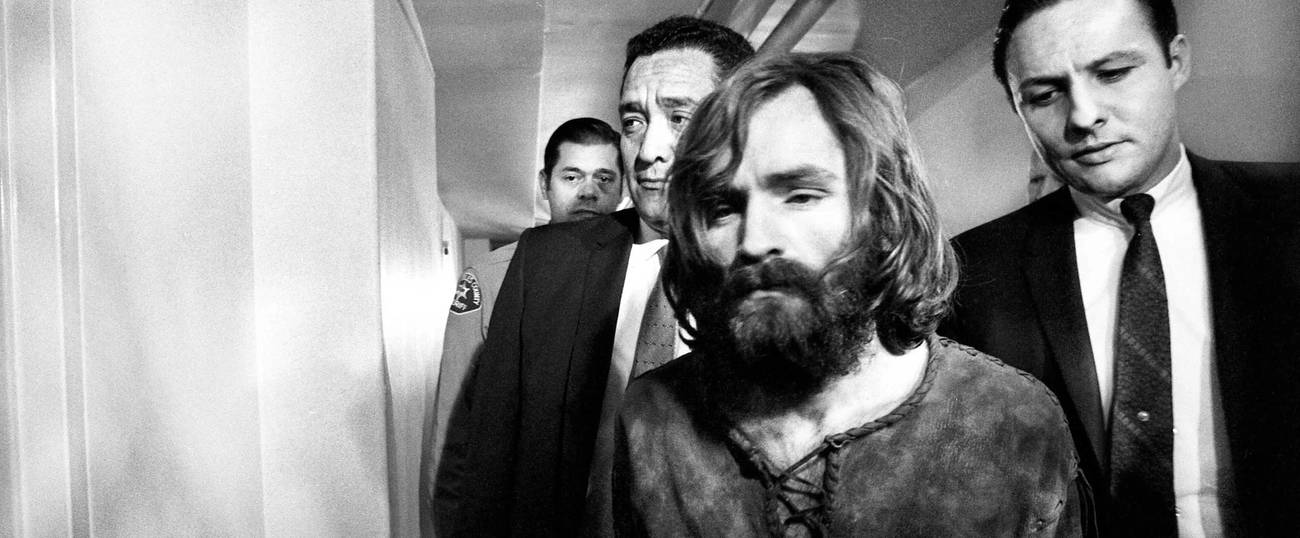The Charles Manson Fallacy
How extreme tolerance and existential rebellion can bring the high-minded to mistakenly embrace murderous lows




The really frightening thing about Charles Manson was not so much his own murderousness (except from the standpoint of the people being murdered, of course), nor his hold over his insane Family, the cult murderers, but his acceptability and even his appeal to other people, the sane and high-minded and groovy bystanders. So far as I know, I never met Manson or any of the members of the Family, though I inhabited the same Haight-Ashbury as them for a couple of months of the Summer of Love and must surely have shared a sidewalk or two, or an afternoon in the Panhandle, or an evening at the Straight Theater, or a dealer. But I can picture their acceptability. For who wasn’t acceptable? The bourgeoisie was not acceptable, and the Democrats and Republicans were not acceptable, but everyone else was, at minimum, a candidate for applause. Here was the problem. Existential rebellion means limitless rebellion, which means that you should be judged by your enemies, and not by your principles. And since Manson’s enemies were the established world, and the established world was loathsome, why shouldn’t Manson be accepted as one more voice in the chorus of rebellion?
This is the fallacy that has led Judith Butler, the distinguished Berkeley philosopher and a distinctly kindly person, to regard Hamas as part of the “global left.” It may be a Bay Area fallacy. Everyone treading the Haight Street sidewalks in the summer of 1967 would have said, “Well, hey, different strokes for different folks.” If you weren’t supremely tolerant, after all, how could you be a hippie? There is, in short, a problem not just with existential rebellion but with tolerance. The supreme author on these questions is Ed Sanders, the beat poet and Fug, in his book on the Manson murders, The Family. Somewhere in his book, Sanders, amazed at his own sentiments, looks up from the page and expresses admiration for the California state police. I remember reading that particular passage, perhaps 45 years ago, and feeling a surge of philosophical clarity. Hippies, bad! (sometimes). The California state police, good! (sometimes).
I do not mean to suggest that Manson fallacies are confined to Bay Area hippies and philosophers. There was a Students for a Democratic Society version. The Manson Family’s murders of Sharon Tate and a series of other people took place in 1969, and, at the end of that year, SDS held its national convention in Flint, Michigan. SDS was a social-democratic youth movement, pro-civil rights, pro-social reform, and anti-communist, presided over by the old-time socialist trade unions, than whom no one in America was more sober. By 1969, SDS embraced a membership of perhaps 100,000 students nationwide, most of them in the Northeast, myself included, and the Midwest, which added up to a noticeable place on the national political scene. Only, the leaders of SDS had by then escaped their servitude to their social-democratic elders. They had declared independence from the sober trade-unions. They had fallen under the romantic sway of the late Ché Guevara, or of Mao Zedong. They had gone mad. And, at the Flint convention, the predominant leaders of SDS, members of the Weather faction, expressed a sympathy for Charles Manson!
The single most influential leaders of SDS at that particular moment were Bernardine Dohrn, who was a young lawyer, and her companion Bill Ayers, who was an idealistic educator. Dohrn delivered the most remarkable speech in the long history of the American left, or, indeed, in the history of the political left anywhere in the world. She praised the Manson Family’s murders of Sharon Tate, the actress, and other people at the Spahn ranch in California, and the murders of Leno and Rosemary LaBianca. I quote from the single most vivid and moving book about the moral collapse of SDS, which is Underground, by Mark Rudd—himself one of the Weather leaders, who, after a while, returned to his senses.
There were crazy discussions at Flint over whether killing white babies was inherently revolutionary, since all white people are the enemy. Out of this bizarre thinking came Bernardine’s infamous speech praising Charles Manson and his gang’s murder of actress Sharon Tate, her unborn child, and the LaBiancas. “Dig it!” she exclaimed. “First they killed those pigs, then they ate dinner in the same room with them. They even shoved a fork into the victim’s stomach. Wild!” We instantly adopted as Weather’s salute four fingers held up in the air, invoking the fork left in Sharon Tate’s belly. The message was that we shit on all your conventional values, you murderers of black revolutionaries and Vietnamese babies. There were no limits now to our politics of transgression.
So it was not just my hippie neighborhood, back in 1967 for a couple of months—it was my estimable social-democratic student movement, whose leaders were much worse. You may ask: how could these things have happened? But never mind how they happened. They happened. There are members of entirely respectable mosques around the world who are asking the same question right now. How? The point is: these things can happen to anyone. The potential for entire social movements to end up sympathizing with visibly pathological murderers with swastikas carved in their foreheads is a persistent potential. All you have to do is let down, for a brief moment, your simplest sense of right and wrong, perhaps because you pride yourself on being upset about some social issue….
***
Read more of Paul Berman’s political and cultural analyses for Tablet magazine here.
Paul Berman is Tablet’s critic-at-large. He is the author of A Tale of Two Utopias, Terror and Liberalism, Power and the Idealists, and The Flight of the Intellectuals.